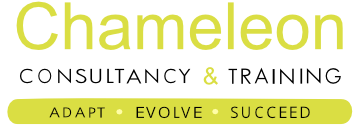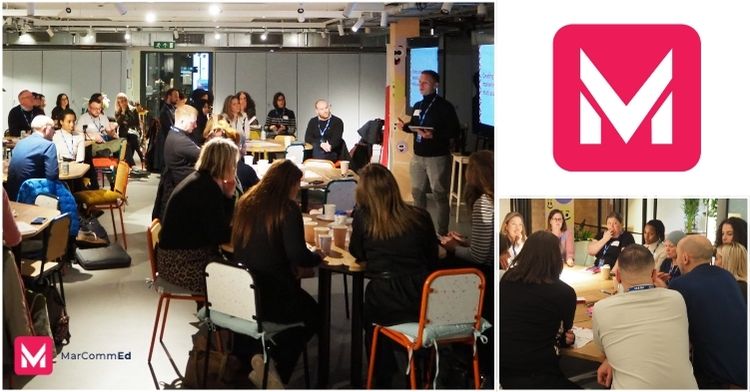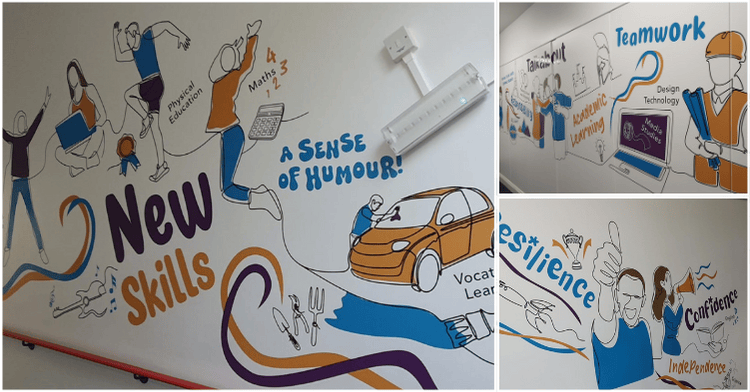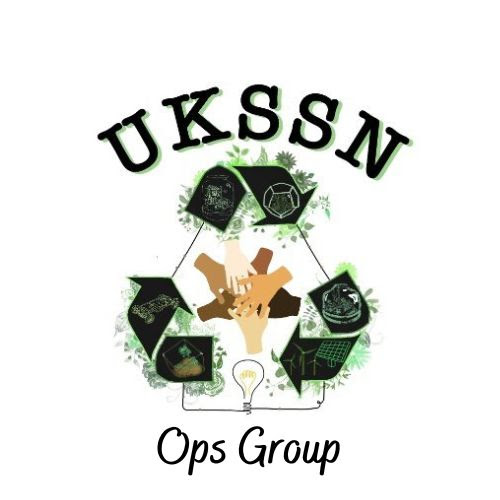Summer Term Newsletter

Summer Term Newsletter 2024 - Issue 1

A very warm welcome to our summer 2024 newsletter. I will be publishing a newsletter like this every term, packed full of practical and impactful advice and insight into the world of school income generation and marketing. I’ll also be inviting opinion pieces from peers and colleagues in the sector, and some experts from beyond education, so they can share their thoughts on a range of topics.
This newsletter will evolve over time I’m sure, and I would welcome your feedback and thoughts. If you’d like to contribute please get in touch – sharing success stories and offering advice on overcoming funding challenges can be really motivating.
Thank you for reading our inaugural newsletter, I really hope you find some of the things within it helpful.
Funding your project – Crowdfunding
Each issue I will take a look at the different ways schools can raise funds for their projects, highlighting the pros and cons, the essentials and the pitfalls to avoid. In this issue, I’ll focus on Crowdfunding as it has increasingly become an area of our work that schools are keen to explore.
Crowdfunding quite simply is a way for multiple donors to pledge support to a school to help fund their project. This is done via an online platform, hosted by a provider (like Crowdfunder or GoodHub for example). These web pages are simple to set up and populate with your project campaign details and can be easily linked to your school website, newsletters and social media platforms. Ordinarily these platforms are free to set up with the host charging processing fees for donations and gift aid. For example, Good Hub charges a payment processing fee of 1.4% + 20p per donation. They collect the gift aid and process this for you, charging a 5% processing fee.
Crowdfunding in a nutshell:
Pros
Very easy to set up a campaign page.
Perfect for smaller sized fundraising initiatives and ideal for schools that can draw on strong parental support and community connections.
Gift Aid included, variable donation options and GDPR compliant.
Low cost and easy to maintain.
Very transparent and a low risk fundraising method.
But remember…
All campaigns ebb and flow – you’ll need to keep pushing and promoting your fundraising.
Keep the campaign narrative on the web page succinct and to the point – highlight the benefits of the project and the impact donors can make.
Make it easy for potential donors to find the crowdfund page – share on your website and social media and perhaps think of a short video to accompany it. Most crowdfund platforms allow you to upload video as well as photos.
Good Hub appears to be the most competitive platform for schools but there are a few out there so it’s worth doing some research first.
Some useful links:
UK Crowdfunding Association - https://www.ukcfa.org.uk/
Focus On
A number of grant funding programmes caught our eye recently and some of these may be relevant to your school or MAT.
London Marathon Foundation – Active Spaces Fund
The Active Spaces Fund is for projects that will improve and activate spaces, places and facilities in London that will help the least active children, young people and underserved groups and communities to lead active and healthy lives. Funding available for capital projects to build or renovate spaces, places and facilities. A rolling programme, open all year. Between £10K - £80K can be applied for. More details here - https://www.londonmarathongroup.org/what-we-do/london-marathon-foundation/our-funds/active-spaces-fund
Clothworkers Foundation – Open Grants Programme
Special schools can apply for capital funding through The Clothworkers Foundation. Although typically schools cannot apply, if your school works exclusively with ‘individuals with physical and/or learning disabilities e.g. special schools’ then you’re eligible. The Foundation will support building works, refurbishments, fixtures, equipment etc. More details here - https://www.clothworkersfoundation.org.uk/what-we-fund/
Changes to Awards for All – National Lottery
Many of you will be familiar with Awards for All but recently this programme has increased its award from £10K to £20K and can support a project for up to two years. A strong emphasis on community engagement of course, this has to sit at the heart of your project. More here - https://www.tnlcommunityfund.org.uk/funding/programmes/national-lottery-awards-for-all-england#section-3

MarCommEd 24 – Dedicated events and support for Marketing and Communications in schools
Great news for anyone working in, or having responsibility for, marketing and communications in schools and multi-academy trusts as Ryan Green of Eduprise, establishes a brand new network, MarCommEd. Ryan, together with Zack Grimes, Director of Communications and Development at Laurus Trust, has already delivered the first of what promises to be a programme of events and support for the group.
‘The inaugural MarCommEd event in London was a resounding success, attracting school marketing and communication professionals working in schools and multi-academy trusts from across England. Everyone was eager to share insights and strategies. This dynamic gathering was highly interactive, with participants not only absorbing wisdom from speakers but also contributing their own experiences. Key highlights included effective use of digital tools and the importance of robust marketing teams. With positive feedback, plans are afoot for more such enriching events, promising continued growth and learning in educational marketing and communication.’
More details on MarCommEd can be found here - https://www.marcommed.com/
Insights and Quick Bites
The recruitment journey
The recruitment of staff continues to be a major headache for many schools. The National Foundation for Educational Research’s (NFER) annual labour market report for 2024 concluded the recruitment and retention crisis showed “no signs of abating”, with teacher supply in a “critical state” (https://www.nfer.ac.uk/media/hqdglvra/teacher_labour_market_in_england_annual_report_2024.pdf). In secondary schools, 10 of our 17 subjects are forecast to under- recruit with primary school recruitment forecast to be 17 per cent below target, far worse than the 4 per cent seen last year.
Doom and gloom all around then. Fixing this problem requires long term solutions tackling workload, pay and a more modern approach to flexible working. But what realistic, practical measures can schools, and MATs implement right now, to help ensure their proposition is marketed effectively and they stand a better chance of attracting the right talent.
Here are our Quick Bites for this issue;
Rethink the process. View this from the perspective of the people you’re trying to reach. Effective marketing is always best viewed through the lens of your audience. How do they see your school and your recruitment offer when they visit your website? Do you have a dedicated recruitment page, enticing interested parties with an insight into school life; mini ‘talking heads’ videos featuring staff, a virtual tour, an infographic perhaps bringing together all the benefits of working with you. Be imaginative, be different. A list of vacancies just isn’t enough to inspire the best candidates to get in touch.
High Trust Channels. Simon Hepburn, of Marketing Advice for Schools, talks about using ‘high trust’ channels to help target recruits. These trusted groups could include existing staff, local community networks, parents and even former pupils.
Don’t forget your greatest ambassadors. Our pupils are our best advocates and marketeers. Don’t overlook the part they can play in enticing new people into your organisation. They lead groups of parents on open day tours so why not play a role in the staff recruitment process?
Simplify and make it easy. Too often our application forms and interviews are inflexible – a take it or leave it approach. Can we offer informal visits, Teams calls and more flexible interview arrangements to entice the right people?

Transforming Spaces – a case study
The Ashley School in Lowestoft, Suffolk is a high performing special school for children with complex and moderate learning difficulties, from Year 3 to Year 11 , some of whom are accommodated within the onsite residential provision.
Headteacher Thomas Ward engaged the services of Chameleon Consultancy to help transform corridors and stairwells into vibrant and engaging spaces. Wall graphics would help tell the story of pupils' experiences at the school, how they develop throughout their time at Ashley. More importantly, Tom wanted staff and pupils to have a say in how this was to look so they could genuinely feel part of the process and have ownership of the end result.
Justin from Chameleon ran briefing sessions with school staff and facilitated feedback sessions to ensure all the ideas were captured. It is always a team effort of course and our long-time partners KSD Associates and SPP Digital came up trumps with the graphic design and wall art installation.
‘Working with Chameleon we transformed the space to reflect the curriculum we offer and the journey pupils make while at the school. Justin really understood the school and what we wanted and worked to get the end product exactly right. We are so pleased with the final outcome.’
Thomas Ward, Headteacher, Ashley School Academy Trust
A really pleasing result and a happy school. It just goes to show what can be achieved with collaboration!
For more information about the Ashley School, please visit https://ashleyschool.co.uk
Sustainability in Schools


Twenty-eight years after the United Nations Brundtland Commission defined sustainability as “meeting the needs of the present without compromising the ability of future generations to meet their own needs,” world leaders pledged to try and prevent global temperatures rising by more than 1.5C. Only eight years after this agreement was signed the earth reached 1.5C of warming (according to the EU's Copernicus Climate Change Service). We are experiencing increasing floods, droughts, heatwaves, and wildfires. Water scarcity, flooding and heat waves have already caused disruption to the education of pupils in the UK in the last year.
The 2022 DfE climate change and sustainability strategy set out guidelines for sustainable practice in schools. However, with no accountability structures in place, why would schools give their precious time and resources to tackle what could be complex, challenging, and costly initiatives? There is a strong moral case, business and educational case for the implementation of sustainability in our schools; financial, reputational, educational and community benefits are among the positive outcomes on offer.
The UK Schools Sustainability Network Operations group is a specialist branch of UK Schools Sustainability Network (UKSSN), part of Global Action Plan (GAP). The purpose of the ‘Ops Group’ network is to bring together school operations, business, finance and sustainability leaders to discuss and collaborate on strengthening sustainability and climate action in schools. The network has been growing since 2022 and includes members working in a range of educational settings, from individual local authority schools through to large multi-academy trusts and federations.
Participating in the network provides a range of benefits:
An opportunity to meet colleagues working in sustainability, to share successes and challenges.
The chance to hear from organisations who are working hard to support our sector in its transition to a greener, cleaner future.
A place to share resources – we encourage members to share policies, documents and other resources that have had impact in their own organisation (why reinvent the wheel).
Half-termly online network meetings supplemented with regular podcasts and blogs.
CPD – learn more about sustainability and the climate crisis.
An opportunity to hear what is happening with the DfE sustainability team and other new initiatives open to our sector.
Find out about local and national events where sustainability is on the agenda.
A chance to get more involved – e.g. speaker opportunities, the chance to write articles about work you have been involved in.
The Ops Group network is completely free to join. We know working collectively will give us the best chance of achieving our climate and biodiversity ambitions. Please sign up, get involved and together we can deliver real, lasting change for our children.
Paul is the Co-Chair of the UK School Sustainability Network (UKSSN) Operations Group - https://ops.ukssn.org/
Emerging Ideas
Artificial Intelligence in School Management
The school business leadership community is feeling the strain. Excessive workload has long been a driver of attrition within workplaces, and research in our sector backs this up. How can we deal with these increased pressures as an industry and does AI hold some of the answers?
Read our latest published article which discusses the positives as well as the negatives of AI in school management.

Online Training
We have a number of online courses running throughout the summer term on topics from bid writing to marketing for your school.
These courses are half day masterclasses designed to give you actionable ideas whether its funding or gaining visibility for your school. Here’s what one of our past attendees said about the courses…
“This morning’s session was incredibly insightful and inspiring with an excellent presentation.
‘The ‘Wheel of Fortune’ is a huge takeaway for me and I will be embedding it in my strategy to support each of our schools!
I hope to join you soon for some more excellent workshops!”
Felicity Baker
Project Lead at Rivermead Inclusive Trust
Please visit our online courses page on our website for more information.
